Stress in Dogs (Pets)
Sometimes the question can be… is it stress or is it fun? And was it caused by my Pet-Parent? ![]() h/t to the pet stress blog for photo 1 & the UCLA Shutterbug Photo 2
h/t to the pet stress blog for photo 1 & the UCLA Shutterbug Photo 2
Stress in Dogs (Pets)
Stress is one of greatest factors affecting the behavior of both humans and animals, and they both react to each other’s stress. Stress levels of dogs or their humans, as well as most other animals, can completely change the dynamic or the relationship the behavior of both, which unfortunately only makes the stress worse.
Stress is the cause of many aggressive behaviors (such as barking, lunging, biting or nipping… especially around food or toys). You can prevent these behaviors by monitoring your dog’s level of stress. And you can monitor your dog’s level of stress, by reading your dog’s stress signals. Removing your pet from the situation that is causing them stress is always the best suggestion and remedy, but understandably, not always possible.
The following behaviors usually signal stress in dogs and most pets:
Slow Tail Wag. A slow tail wag is NOT friendly. It is a sign of stress.
Tail tucked between hind legs. This behavior probably signals fear. Fear is an extreme form of stress.
Being unable to eat. If your dog took food a moment ago, and abruptly will not take food, evaluate the dog’s environment and see what maybe causing stress. Immediately move the dog away from the source of stress, to prevent triggering of possible aggressive behavior.
Being unable to play. If your dog is normally playful and suddenly can’t play, it is likely that your dog is stressed. Again, immediately remove your dog from the situation he or she is in.
Low ear carriage. Scan the area for a probable source of stress, if you find the source, move away from it and watch how your dog’s ears respond. If they lift, then you have done a great job protecting your dog from stress and helped her feel better. This will increase your dog’s ability to trust you and will deepen your bond with your dog (or cat).
Blinking of eyes. Deliberate eye blinking can be a sign that your dog is experiencing stress.
Squinting of eyes. Again, this can be a sign of mild stress.
Holding Breath. Breath holding can be a precursor to aggressive behavior. If you notice your dog holding her breath, rapidly remove her from the source of stress in her environment.
Puffing. Puffing is when the dog rapidly exhales a small amount of air, that causes her cheeks to puff out. Puffing is a precursor to aggression.
Stiffness. Also a precursor to aggression.
Staring. Another precursor to aggression.
Panting. If you notice your dog panting and she is in a potentially stressful situation she may need to be moved away from the stressor.
Urinating. Controlled or uncontrolled urination can be caused by stress. It is the same dynamic as with young children who wet the bed, soil their pants or withhold voiding. It is something they can control and get attention for, even if it is negative.
Seizures. Stress can absolutely cause seizures in dogs. It is a sign of severe stress or could be Canine Stress Syndrome or one of several other more serious conditions or illnesses. And yelling at a dog that is already stressed to the point of seizures will only bring them on and make them worse.
Loss of fur, feathers or scales. Many animals begin to shed or molt when under stress.
Hiding. Both dogs and cats will hid to avoid stressful situations. So will some pocket pets if they can move around freely.
Below are SOME of the situations that create doggie stress:
Travel. Air flight, train travel or extended car trips if it is not something your pet is used to.
New environment. Some dogs hardly notice, but many have a hard time.
New people. Some dogs, like some people, are more sociable than others, but many have a hard time, especially with lots of new people added to a new environment
Feeling that they are not liked or welcome. God created dogs to please humans. They have feeling and become aggressive or retreat into themselves if they feel unwanted. Dogs can become depressed and some will act out, only making the situation worse.
New Home. Moving to a new home can be traumatic for some dogs and create no problem for others. If possible, letting them visit their new home before moving there is helpful and advisable.
New or different routine. Most dogs love a new adventure, but they are also creatures of routine.
The introduction of an additional dog, pet or small child. A new pet, visiting animal or a new small child or children can be threatening or scary for pets in general.
Changes in food or feeding. Food is one of the mainstays of a dog’s (pet’s) life. Changing their type of food, schedule to eat, or having to share food with additional pets can be a very stressful situation. Occasionally dogs can develop stress from reactions to a new or different food or feeding schedule… or something they ate that they shouldn’t have.
Schedule Changes. Changing more than one schedule at once, like eating, walking, sleeping, playing or whatever they are used to in their routines can case stress.
Noise. Loud noises, loud voices, new sounds and noise can all be threatening and stressful to dog (pets).
Yelling or Anger, especially unwarranted or unfair corrections. Because the dog’s need and want to be loved and pleased yelling and perceived anger can cause stress along with negative behaviors.
New training. Training can be fun for some dogs and very stressful for others, especially when it doesn’t go well or the dog is not rewarded for its efforts.
Loss of family member: human or animal. Dogs and pets in general grieve just like humans and especially grieve for the loss of their human(s).
Illness of Pet. Illness causes a myriad of side affects for pets, just like for humans.
Illness of Pet Parent or family member. Illness of a pet parent or family member can cause severe stress in dogs (pets)!
Perceived inequitable treatment of Pet. Dogs like children and most creatures react negatively to inequitable treatment. If you have more than one dog or more than one dog is living or present in your situation, it is the smart and right thing to do to treat them equally. Feed them the same. Take then out and play with them all, etc. Feeding one dog while other watch is like feeding or sharing with one child and not the others.
Fear. Dogs (pets) like humans have fears that run the gamut and their level of fear cannot be judged by their size, age, situation, or your perception of how they should feel or react… or what they should do.
Anxieties. Like with fears, dogs (pets) like humans have fears that run the gamut and their level of fear cannot be judged by their size, age, situation, or your perception of how they should feel or react… or what they should do.
Unknown or unfamiliar animals or people entering your pet’s perceived territory. Dogs perceive their house, yard, space outside their car and familiar places as their territory. It is their natural instinct to protect their property, themselves, other pets (especially dogs because the for a pack) and their humans or family.)
Over-reaction to behaviors. Over-reacting to negative behaviors or if your dog is acting out, usually produces the opposite affect that you want. (Also scolding a dog or any pet after the fact… a while after they did something wrong or if you did not see who did it if you have more than one pet is fruitless, unfair and could create greater problems. A pet cannot connect what they did wrong with the scolding for something they did earleir, even if you take them to the site and point at it.)
New attention or reactions… to good or bad behavior. laughing at a behavior good or bad, is attention and sometimes will the cause the recurrence because of your reaction.
Lack or exercise. Regular exercise is one of the best things you can do do for your pet for many reasons, including their health, stress level, behaviors, and boredom level.
Boredom. Dogs, like all creatures, suffer from boredom and some tend to act out when they are bored. Exercise, preferably regular walks, as well as one on one time, training, playtime and rides in the car are positives and will help manage their stress… and yours!
Lack or attention or play time. Lack of interaction or playtime with their or a human or other dogs and pets can create stress because of boredom, inactivity and lack of one on one time. Because of their nature, dogs need regular interaction more than most pets.
Loss or change of their belongings and space. Dogs are territorial so they protect their space, belongings and food. Losing their special niche, pillow, toy. ball or place on the bed or in your life can create stress in most dogs and most other types of pets and animals to some degree.
Extended time without their human(s) or alone time if it is a change. Dogs and other pets, although unusual, have been known to pine away or even die after the loss of their human or family. Even temporary, but extended time away from their pet parents or humans can cause stress in some dogs. Others adjust just fine. But for this reason, keeping your dog with a pet sitter is always better than a kennel!
Medications, lack of medication and medical conditions. Medication, lack of medications or ongoing medical conditions can cause stress in dogs and pets in general, like in humans. A change in meds can often cause that temporarily. (A relatively unknown fact this that dogs can suffer from ADHD, ADD and other like conditions. Those pets/animals can portray the same conditions and behaviors as the human counterparts. And it really must be remembered that they cannot help their behaviors and reactions.)
Even drastic weather or climate changes. Drastic weather conditions can cause stress because it can cause the inability for them to go outside, or go out often, or to get their regular exercise. Lightening and thunder can cause fear and stress in animals. And in some pets dampness, extreme heat or extreme cold can cause the flare up of health problems like arthritis, rheumatism, heat exhaustion, etc as well as stress.
Abuse. It goes without saying that abuse… physical, emotional, verbal, lack of food and clean water, over-crowding or abuse of any kind causes dogs, humans and all creatures stress and need to be stopped and/or reported immediately!! Silence and non-action makes us all accomplices!
Reaction to pet-parent’s stress.
If you notice your pet exhibiting any of the stress indicators, try to remove them from the situation. And if your pet experiences more than three of these at a given time and you cannot change the situations or remove your pet, it might take a good while for them to adjust or re-adjust. It could even require a behaviorist if extreme or undesirable behaviors manifest or persist. Try to remember that you could be the reason for your pet’s stress!
Remember, the average dog has he mental and emotional capacity of between a two and three year old human child, depending on the individual dog and the breed, but they lack the ability to reason. Plus you obviously cannot explain to them why things have changed, nor can they communicate what is bothering them.
Let us also remember that barking is a dog’s way of talking… communicating and although too much can be aggravating, it is natural for them to bark!
Patience, love and positive reinforcements are always the best reaction. Yelling, punishment and anger only confuse them more and add to their stress.
Dogs have the intelligence of a 2 to 3 year old toddler, depending on the breed and the individual dog. But they lack the power to reason and have no conception of time. Although when you read an article like the one about the Commuting Dogs in Moscow, you gotta wonder! And, dogs and other animals do have other abilities and intelligence or intuition that we people don’t! They also have enemies all over the world (Man’s Best Friend in Shariah’s Cruel Crosshairs)
Being a pet parent is like being the parent of a perpetual toddler and some need more patience, understanding and love than others. Loving the good or perfect ones is easy. Loving the ones who aren’t so perfect or have special needs is the true test of your love and parenting skills. It really is a test of your character not their abilities. Try to remember, the ones that need the most love usually love you back the most if you let them.
Source: Courteous Canine, Inc. 2006 No Force, Just Fun!
‘Dogs Have The Intelligence of a Human Toddler’
On the First Day God Created the Dog!
Until One Has Loved an Animal, Part of Their Soul Remains Unawakened
*Birds tend to suffer from more stress than most and the holidays provide stress for most pets!
By Marion Algier - h/t to the pet stress blog for photo 1 & the UCLA Shutterbug Photo 2
April 1, 2011 Posted by justonemorepet | animal behavior, Animal or Pet Related Stories, Dogs, If Animlas Could Talk..., Just One More Pet, Man's Best Friend, Pet Health | dog stress, pet stress, stress, stress in pets, stress relief | 11 Comments
Save a Life…Adopt Just One More…Pet!
Everyday we read or hear another story about pets and other animals being abandoned in record numbers while at the same time we regularly hear about crazy new rules and laws being passed limiting the amount of pets that people may have, even down to one or two… or worse yet, none.
Nobody is promoting hoarding pets or animals, but at a time when there are more pets and animals of all types being abandoned or being taken to shelters already bursting at the seams, there is nothing crazier than legislating away the ability of willing adoptive families to take in just one more pet!!
Our goal is to raise awareness and help find homes for all pets and animals that need one by helping to match them with loving families and positive situations. Our goal is also to help fight the trend of unfavorable legislation and rules in an attempt to stop unnecessary Euthenization!!
“All over the world, major universities are researching the therapeutic value of pets in our society and the number of hospitals, nursing homes, prisons and mental institutions which are employing full-time pet therapists and animals is increasing daily.” ~ Betty White, American Actress, Animal Activist, and Author of Pet Love
‘Until One Has Loved an Animal, Part of Their Soul Remains Unawakened’
So if you have the room in your home and the love in your heart… Adopt Just One More Pet or consider becoming a Foster parent for pets… Also check out: Little Critter: Just One More Pet
Inside of a Dog: What Dogs See, Smell, and Know(Kindle)


Photos By: Marion Algier – The UCLA Shutterbug
There is always room for Just One More Pet. So if you have room in your home and room in your heart… Adopt Just One More! If you live in an area that promotes unreasonable limitations on pets… fight the good fight and help change the rules and legislation…
Save the Life of Just One More…Animal!

Recent and Seasonal Shots
As I have been fighting Cancer… A battle I am gratefully winning, my furkids have not left my side. They have been a large part of my recovery!! Ask Marion
Photos by the UCLA Shutterbug are protected by copyright, Please email at JustOneMorePet@gmail.com or find us on twitter @JustOneMorePet for permission to duplicate for commerical purposes or to purchase photos.
See Creative Pet Halloween Costumes
If you can adopt or foster just one more pet, you could be saving a life, while adding joy to your own! Our shelters are over-flowing… Please join the fight to make them all ‘NO-Kill’ facilities.
Help Make a Difference

Protect Your Pet From Tarter and Gum Disease
Plaque Attack Triple Care Dental Spray Amazon.com Widgets- Adopt Just One More Pet All Animals All Pets animal abuse animal advocacy animal advocates animal cruelty animals ASPCA Bears be part of the solution Birds California cancer canines Cats cats and dogs Chihuahuas China Chiweenies Christmas cute dog Doggies dogs dogs and cats Dr. Becker elephants Fido fish for the love of a pet German Shepherd Halloween holidays holidays with pets horses HSUS Humane Society Humane Society of the United States JOMP Just One More Pet JustOneMorePet kittens kitties livestock Love man's best friend military dogs monkeys New York Pet Abuse Pet Adoption Pet costumes Pet Food pet fun Pet Health Pet Parents Pets pet safety pets and holidays Pets Are Family Pet Therapy Puppies puppy mills pups rabbits Rainbow Bridge reptiles responsible pet ownership responsible pet parents service dogs Stop Animal Cruelty Texas There Is Always Room For One More Pet we are their voice
 JustOneMorePet
JustOneMorePet- In Memory of Rocky – Until We Meet Again on Rainbow Bridge
- In Memory of Rocky – Until We Meet Again on Rainbow Bridge
- Panda Accused of Faking Pregnancy To Get Better Food, Air Conditioning
- Dachshund Family Photo | Picture Furrfect
- They Were Dead Puppy Parts Instead of Dead Baby
- Bob’s Full House
- Keep Your Pets Safe on the 4th of July
- JOMP Salutes Doggie Dads Both Two and Four Legged
- Smartest Dog In the World, Chaser – 60 Minutes With Anderson Cooper
- Quebec bill changes animals from "property" to sentient beings and includes jail time for cruelty
Find Pet Friendly Hotels
Recent Comments
JustOneMorePet
Tweets by JustOneMorePetFlickr Photos
Meta
Great Book for Children and Pet Lovers… And a Perfect Holiday Gift
One More PetEmily loves animals so much that she can’t resist bringing them home. When a local farmer feels under the weather, she is only too eager to “feed the lambs, milk the cows and brush the rams.” The farmer is so grateful for Emily’s help that he gives her a giant egg... Can you guess what happens after that? The rhythmic verse begs to be read aloud, and the lively pictures will delight children as they watch Emily’s collection of pets get bigger and bigger.
~~ 2000+ Dog Books And All Things Dog ~~
Dogwise, All Things Dog! Monthly Feature: BEHAVIOR PROBLEMS IN DOGSBuy Now: A Must Have For Every Pet Owner
-
Archives
- August 2015
- July 2015
- June 2015
- May 2015
- April 2015
- March 2015
- February 2015
- January 2015
- December 2014
- August 2014
- July 2014
- June 2014
- May 2014
- April 2014
- March 2014
- February 2014
- January 2014
- December 2013
- November 2013
- October 2013
- September 2013
- August 2013
- July 2013
- June 2013
- May 2013
- April 2013
- March 2013
- February 2013
- January 2013
- December 2012
- November 2012
- October 2012
- September 2012
- August 2012
- July 2012
- June 2012
- May 2012
- April 2012
- March 2012
- February 2012
- January 2012
- December 2011
- November 2011
- October 2011
- September 2011
- August 2011
- July 2011
- June 2011
- May 2011
- April 2011
- March 2011
- February 2011
- January 2011
- December 2010
- November 2010
- October 2010
- September 2010
- August 2010
- July 2010
- June 2010
- May 2010
- April 2010
- March 2010
- February 2010
- January 2010
- December 2009
- November 2009
- October 2009
- September 2009
- August 2009
- July 2009
- June 2009
- May 2009
- April 2009
- March 2009
- February 2009
- January 2009
- December 2008
- November 2008
- October 2008
- September 2008
- August 2008
If You Were Stranded On An Island…
A recent national survey revealed just how much Americans love their companion animals. When respondents were asked whether they’d like to spend life stranded on a deserted island with either their spouse or their pet, over 60% said they would prefer their dog or cat for companionship!





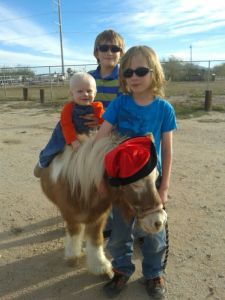
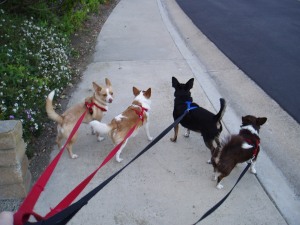

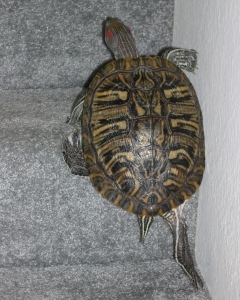
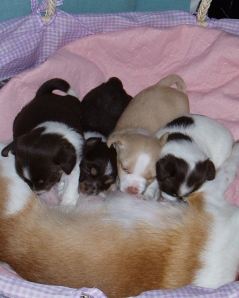
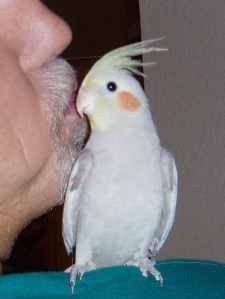

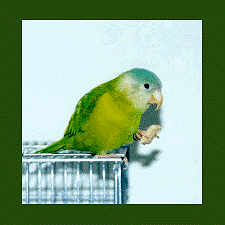
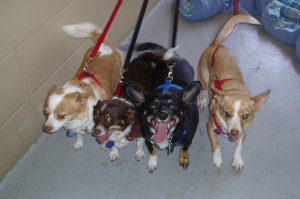
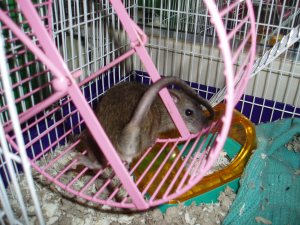

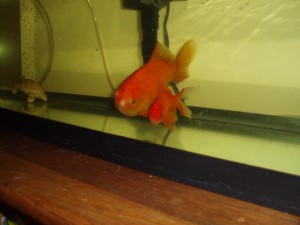
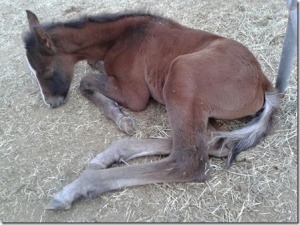

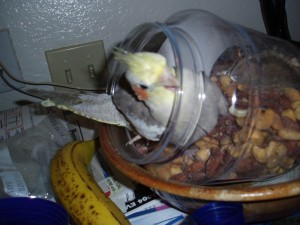


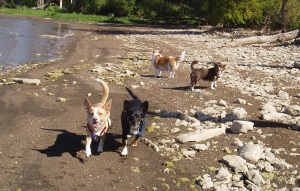


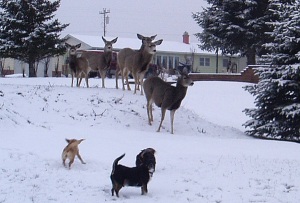



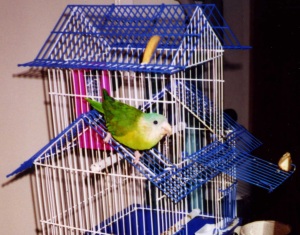


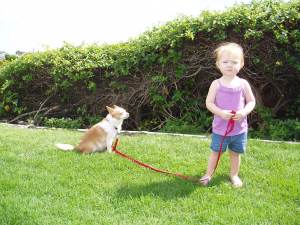
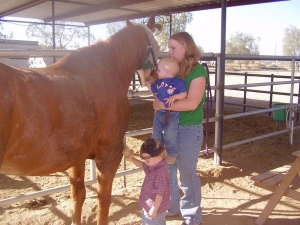
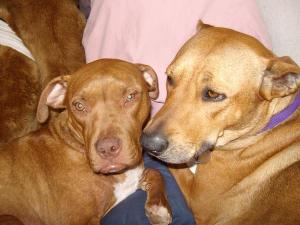





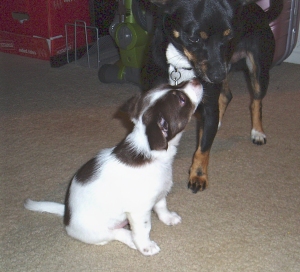

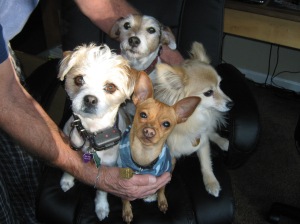













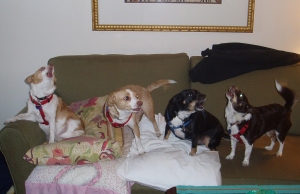
















You must be logged in to post a comment.